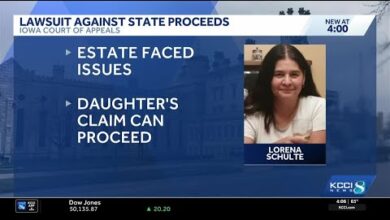Exclusive: Student nurses to qualify late due to hours confusion

Errors in calculating placement hours, including inappropriate inclusion of reflection time, mean some nursing students are set to miss their expected qualification date, Nursing Times has learned.
The Nursing and Midwifery Council (NMC), which approves nursing courses, recently carried out a series of ‘education quality assurance’ inspections at universities.
“Now we have to make hours up for somebody’s mistake”
University of Brighton student
These inspections found “concerns” that some universities had been improperly counting simulation and reflection hours towards the 2,300 practice hours needed to be eligible for NMC registration.
Typically, the hours are made up, mostly, from time spent on placements. Students may also contribute to the total with reflective time and simulated practice, but the amount is limited.
Sam Foster, executive nurse director of professional practice at the NMC, confirmed to Nursing Times that its inspections had highlighted “themes” affecting “some” universities.
“These include examples of certain simulation activities that aren’t in line with our standards, and concerns around reflection time being counted towards practice learning hours,” she said.
As a result, the regulator wrote to all course providers highlighting the issue and said some students may have to make up the hours, possibly delaying their registration.
One university affected is the University of Brighton, where final year student nurses have been told that it is likely that most of them will be register later than expected.
“We are in shambles,” one student nurse told Nursing Times. “Our WhatsApp group is on fire, as now we have to make hours up for somebody’s mistake.”
An information document, shared with students by the university and seen by Nursing Times, showed that students had been previously instructed that they could make up 5.5 out of their 37.5 hours per week placement requirements with reflective practice.
The students had been informed that the reflective hours would “automatically” be counted on the assumption that a practice assessor or supervisor would also sign these off.
However, the university told students last week, a visit by the NMC found that these 5.5 hours of reflective hours were not always being signed off, and in other instances “have not consistently been used for reflection”.
As a result, the students were told these 5.5 hours per week would no longer be counted and that they would have to make up any previously-included reflection hours that had not been signed off.
The students were told that they would all now be required to be in placements for 37.5 hours per week, and that “most” final year students would miss their expected registration date.
“Nothing is definitive at this point, however some students may need to make up for a shortfall in practice hours”
Sam Foster
In addition, the university said that hours from simulated training were being “reviewed” after the NMC’s visit.
In its letter to universities, the NMC aid that some programmes had been wrongly counting e-learning packages, online work or non-supervised reflective hours under simulated practice learning hours.
The University of Brighton told the students that there was a “likelihood” that some of these simulated hours would also need to be made up, due to being counted incorrectly towards the final total.
It assured its students that “immediate action” was being taken to make sure no more hours were lost, but that the change from 32 hours per week placements to 37.5 would happen immediately to minimise the delay in registration.
Last year, students at Canterbury Christ Church University (CCCU) were faced with a similar situation, as reported by Nursing Times.
Just weeks before their graduation date, around 200 final year nursing students were told that a university mistake meant they were short of 300 clinical placement hours.
A University of Brighton spokesperson said the provider was “making changes” to the way its students would achieve their needed clinical hours, and acknowledged it had received “feedback” from the NMC.
They said: “Since the NMC’s visit in March, we have been actively engaging with them in relation to the nature of the reflective practice and practice simulation which has been counted towards some of our nursing students’ clinical hours.
“As a result of these discussions, we are making changes to the way in which learners on these courses achieve their clinical hours to meet the required standards.
“We are working closely with our NHS partners to make these changes, and our students can be confident that they will be able to complete their required clinical hours, graduate and begin their future careers.”
The spokesperson said the issue affected adult, child and mental health nursing courses, but not midwifery or nursing associates.
The NMC was not withdrawing its validation of any of the impacted courses.
The regulator said the issues with placement hours had “partly” arisen from universities having continued to follow some of its Covid-19 emergency and recovery standards after they were withdrawn.

Sam Foster
However, Ms Foster stressed: “The final quality assurance reports have yet to be published and nothing is definitive at this point, however some students may need to make up for a shortfall in practice hours.
“At this stage, we’re working with approved education institutions and our partners to further understand the scale and impact of these concerns, and how to address them in a safe and fair way.
“We all share a common goal, which is to enable the next generation of nursing and midwifery professionals to graduate with all the right proficiencies, join the register and start providing safe and effective care to people who need it.”
Meanwhile, alongside the simulation and reflection issues, the NMC has also been made aware of an education provider using a satellite site for teaching which had not approved by the regulator.
It said it was working with the provider in question to try and resolve the issue quickly, and that it had asked other universities if they were using any unapproved satellite sites.







